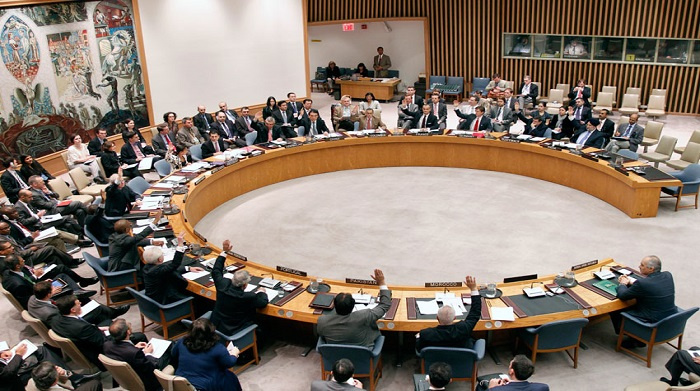Iran, Russia, US Agree on Assad

-Two issues which were not discussed in the recent Security Council resolution have been resolved in other forms and create no problem for the resolution of this crisis.
-Regarding the fate of Bashar Assad, almost all parties involved in this crisis agree that he would remain in power until power is transferred through democratic process.
-Of course there are parties who disagree with this issue, but the majority of players, including the US, NATO, Russia and Iran, agree on Assad remaining in power until free elections are held and then power will peacefully be transferred to his successor.
-Therefore, there was no need for this issue, which was agreed by the main players, to be discussed in this resolution.
-Another issue which is difficult to agree upon is naming the terrorist groups; because Saudi Arabia, which is one of the negative players in the Syrian issue, held a conference in Riyadh last week without the agreement of the main players and invited Assad’s opponents.
-Saudi Arabia invited those groups which in its view should participate in the process of making decisions about Assad.
-Saudi Arabia intentionally ignored some Syrian opposition groups, which indicated its dishonesty and biased attitude.
-Thus, the resolution does not mention the list of the terrorist groups because the Security Council did not intend to enter a dispute with Saudi Arabia about this list and is interested in the resolution of this issue among the main players.
-When Saudi Arabia made this invitation, even some Assad opponents in Syria who are its puppets protested against this measure. Other powers including Russia, the US and Iran also expressed their protest, thus, the Security Council did not involve itself in this matter so that it would not enter an ideological discussion with Saudi Arabia.
-With regard to Assad’s candidacy in the future elections, I believe that Iran and Russia express similar views to those of the US but in a more respectful manner; as I have heard from the Iranian sources, Iran does not insist on Assad’s candidacy in the next election.
-In this geopolitical confrontation, the story does not begin or end with Assad. In general, since two years ago when ISIS entered the scene, the scenario has changed. Thus, in the new scenario no one insists on the fate of Assad. When the US is inclined towards Iran and Russia, it would mean that it intends to destroy ISIS and resolve the Syrian crisis.
-Although Saudi Arabia is a financial power, it is not a national power with high education, economy and a large labor force; Saudi Arabia is not even a nation, but rather a collection of tribes administered by one tribe. This is while one of the characteristics of power is having a nation.
-Hence, Saudi Arabia only has financial influence but Israel and Turkey are its partners as right now the triangle of Saudi Arabia, Turkey and Israel is placed against the triangle of Iran, Russia and Iraq. (Of course, the US has now entered the second triangle.)
-Therefore, the Security Council remains silent because it wants these two triangles to resolve the problem themselves.
-Whenever there is war and afterwards negotiations, there is hope. Of course, this crisis is not easy to resolve but those issues about which the Security Council has remained silent do not create obstacles in the resolution of this problem.
-In general, the triangle of Iran, Russia and Iraq (and the US) has gained superiority within the last two months which is due to the right policies of this triangle and wrong policies of the other triangle; it could be said that the failure of Saudi Arabia, Israel and Turkey is caused by the wrong policies of Erdogan and the Al-Saud regime which are blamed even by the US and western countries.

